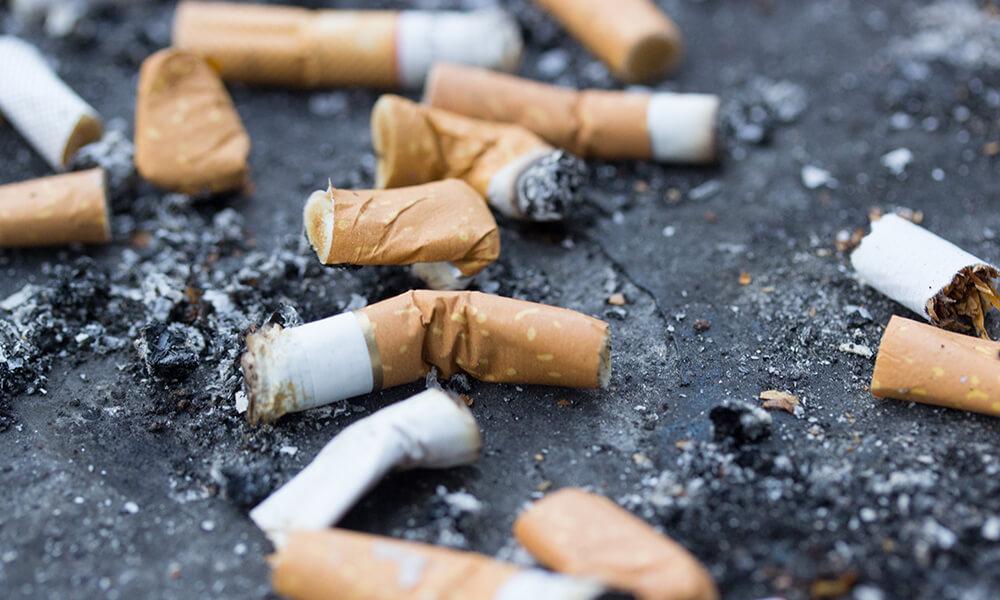Cigarettes turn plastic surgery dreams to ash
Media from the offices of Broadway

Cigarettes turn plastic surgery dreams to ash
First of all, smoking and vaping habits can seem impossible to break. Some people don’t even try to overcome an addiction to cigarettes or e-cigarettes. However, if you’re planning to undergo a plastic surgery operation, you might find some new motivation to quit. Smoking before a plastic surgery procedure places patients at a greater risk for complications related to anesthesia, blood flow and recovery. Most of the time, plastic surgeons will tell patients to quit the habit before their operation. In some cases, this is a recommendation so that the procedure and the recovery go as smoothly as possible. For other patients, if they continue to smoke, plastic surgeons will not be able to perform the operation because of the high risk.
Want to learn more?
Have questions?
Want to schedule a consultation?
Effects on anesthesia and medicine
For starters, studies show that people who smoke require significantly more anesthesia during an operation. Interestingly, these patients also require more pain medication after the procedure and report more discomfort than nonsmokers. Smoke paralyzes part of your lungs and lowers your body’s oxygen levels. Consequently, this means your heart and lungs have to work harder while you’re under anesthesia. Also, chemicals in cigarettes can change the way medicine interacts with your body, making surgery more risky for patients who smoke.
Blood vessel complications
Plastic surgery operations shape your skin and tissue, sometimes using skin from other parts of the body. Blood carries oxygen to your tissue, which keeps it alive. Healthy blood flow is an important part of the recovery process for plastic surgery procedures. However, cigarettes contain chemicals that interfere with proper blood flow. For example, nicotine, carbon monoxide and hydrogen cyanide are damaging to your blood circulation. This affects how plastic surgery procedures heal.

During a facelift operation or a tummy tuck, for example, the skin is molded and moved. Meaning, that some of your blood vessels are divided. If the vessels are not healthy, skin can die from the lack of oxygen and the affects of nicotine. Potentially, this could leave ugly scars, open wounds and serious problems.
Scaring and recovery problems
Additionally, scars heal differently for smokers, because nicotine constricts blood vessels. Blood does not flow as well through smaller blood vessels. If blood is not reaching the tissue, it can’t heal properly. Damaged blood vessels make the recovery process longer. Patients who smoke are more likely to battle infections, because cigarettes weaken your immune system. Smaller blood vessels also place patients at a higher risk for blood clots, which pose serious health risks.
Nicotine product use
Of course, nicotine patches and nicotine gum are great tools for helping people end their smoking habits. These products are meant to act as a substitute by providing your body with nicotine without the other harmful chemicals found in cigarettes. Patches and gum effectively reduce your cigarette cravings, but they still contain small amounts of nicotine. But, they’re meant to help your body transition. This means that nicotine gum and patches will still affect your plastic surgery operation. Because of this, products that contain nicotine should not be used at all in the weeks before and after your procedure.
Vaping drawbacks
Also, people who smoke or vape often see e-cigarettes as an exception. E-cigarettes have become increasingly popular and are generally seen as safer than traditional cigarettes. However, medical experts tend to disagree. In addition, plastic surgeons recommend that patients stop using e-cigarettes before an operation. Like regular cigarettes, vaping liquid contains nicotine and other substances that could be harmful for plastic surgery patients.
Effects on anesthesia and medicine
For starters, studies show that people who smoke require significantly more anesthesia during an operation. Interestingly, these patients also require more pain medication after the procedure and report more discomfort than nonsmokers. Smoke paralyzes part of your lungs and lowers your body’s oxygen levels. Consequently, this means your heart and lungs have to work harder while you’re under anesthesia. Also, chemicals in cigarettes can change the way medicine interacts with your body, making surgery more risky for patients who smoke.
Blood vessel complications
Plastic surgery operations shape your skin and tissue, sometimes using skin from other parts of the body. Blood carries oxygen to your tissue, which keeps it alive. Healthy blood flow is an important part of the recovery process for plastic surgery procedures. However, cigarettes contain chemicals that interfere with proper blood flow. For example, nicotine, carbon monoxide and hydrogen cyanide are damaging to your blood circulation. This affects how plastic surgery procedures heal.
During a facelift operation or a tummy tuck, for example, the skin is molded and moved. Meaning, that some of your blood vessels are divided. If the vessels are not healthy, skin can die from the lack of oxygen and the affects of nicotine. Potentially, this could leave ugly scars, open wounds and serious problems.
Scaring and recovery problems
Additionally, scars heal differently for smokers, because nicotine constricts blood vessels. Blood does not flow as well through smaller blood vessels. If blood is not reaching the tissue, it can’t heal properly. Damaged blood vessels make the recovery process longer. Patients who smoke are more likely to battle infections, because cigarettes weaken your immune system. Smaller blood vessels also place patients at a higher risk for blood clots, which pose serious health risks.
Nicotine product use
Of course, nicotine patches and nicotine gum are great tools for helping people end their smoking habits. These products are meant to act as a substitute by providing your body with nicotine without the other harmful chemicals found in cigarettes. Patches and gum effectively reduce your cigarette cravings, but they still contain small amounts of nicotine. But, they’re meant to help your body transition. This means that nicotine gum and patches will still affect your plastic surgery operation. Because of this, products that contain nicotine should not be used at all in the weeks before and after your procedure.
Vaping drawbacks
Also, people who smoke or vape often see e-cigarettes as an exception. E-cigarettes have become increasingly popular and are generally seen as safer than traditional cigarettes. However, medical experts tend to disagree. In addition, plastic surgeons recommend that patients stop using e-cigarettes before an operation. Like regular cigarettes, vaping liquid contains nicotine and other substances that could be harmful for plastic surgery patients.
